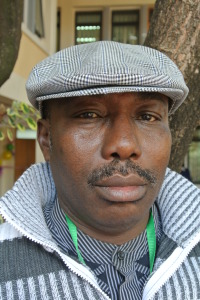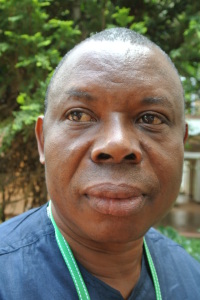Two Nigerians – Dr Sunday Makinde of the Lagos State University, Ojo and Dr Godson Nwofia of the Michael Okpara University of Agriculture, Umudike – are among 21 senior plant scientists from sub-Saharan Africa who recently graduated as the first cohort to complete training with the African Plant Breeding Academy (AfPBA) in Nairobi, Kenya. From 11 countries and 19 institutions, they are returning to their respective countries to work on neglected crops that are fundamental to their peoples’ nutrition and culture.

“It’s profound,” said Howard Shapiro, chief agricultural officer for Mars, Incorporated, which currently funds the academy. “Only 57 plants in the world have ever been sequenced. Now we are adding another 101. These scientists are at the top of their game. Many of them are professionals and heads of research institutes. Now with the AfPBA training, they have the ability to make decisions about plant breeding quicker, which will lead to better plants with, among other things, much higher nutrient content.”
The six-week course was led by the University of California Davis and included some of the world’s most renowned plant breeders, such as Rita Mumm, Bruce Walsh, Allen Van Deynze and Iago Hale, as trainers. It is hosted by the World Agroforestry Centre (ICRAF) in Nairobi, which also inaugurated the African Orphan Crop Consortium Laboratory on Wednesday 10 December.
Orphan crops are crops that are under-researched and undervalued by decision makers because they figure little in global trade. Yet they are vital as sources of energy (e.g. oil from the Shea tree) as well as protein, vitamins, minerals and other micronutrients (e.g. spider plant) in resource-poor societies. Culturally significant and mostly indigenous, orphan crops tend to be resilient to environmental stresses and adapted to local conditions.
Often only one or two traits – a tough seed coat in the case of the African yam bean – are preventing them for providing nutrition to millions more people. The African yam bean is an exceptionally nutritious pulse, whose utilisation is poor and localised. In rural Africa, almost 40% of children under the age of five are stunted — have short stature for age and at times impaired cognitive development.
The 101 plants include the Bambara groundnut, an African grain legume and leading protein source in Zimbabwe, where it is grown by 70% of farmers. It contributes to food and nutritional security by yielding well in marginal areas which are too arid for the common groundnut, maize and even sorghum. More protein rich than the common bean, it contains 17–25% protein, 42–65% carbohydrate and 6% lipids. Zimbabwean plant breeder Busiso Mavankeni, one of the four women on the AfPBA training, plans a cultivar which matures in less than 100 days as opposed to the current lengthy 140.

Genomes for eight species, including the astoundingly nutritious Baobab, are being sequenced and assembled by the Beijing Genomics Institute. Just 20g of Baobab pulp provides 10 times the antioxidant level of oranges, twice the amount of calcium as spinach, three times the vitamin C of oranges and four times more potassium than bananas. The genomes will be further analysed by ICRAF’s new lab with machines donated by Life Technologies (Thermo Fischer).
Knowing where traits lie on the genome enables the scientists to breed out factors that impede productivity. “What BGI is doing is writing the treasure map,” says ICRAF director general Tony Simons, which can be plumbed to create improved planting materials for smallholder farmers. The approach is not to create GMO orphan crops but to expedite conventional breeding methods with knowledge of orphan crop genomes.
Dr Firew Mekbib from Haramaya University intends to focus on the Ethiopian potato, a super orphan among orphan crops on which there has hitherto been no research. “The farmers, who curate and breed this crop, say there is not enough planting material. We need to de-orphanize and microtuberise it.” He plans a superior Ethiopian potato by 2018 and is setting up a center to work on 40 orphan crops. Commenting on Mekbib’s initiative, Shapiro, who led the way in 2010 by sequencing the cocoa genome and making it public, says, “What we are seeing here is a scientific explosion”.
Dr. Makinde is breeding the fluted pumpkin, a vine from the rain forest ecosystem, the seeds and leaves of which – high in protein and iron – form part of the daily diet in Nigeria in dishes called egusi and ogbono.
“The problem with this plant is that you cannot tell the male and female plant apart until they start flowering. Only the female plant produces pumpkin yet the farmers cannot tell which to grow when they are young,” says the botanist.
Dr. Nwofia’s crop is coco yam. Like other neglected crops, it is almost undocumented – at least in Africa. “If you go to the internet, you get little or no information. Production in Nigeria used to be the highest in the world but of recent has dropped by more than a half because of the Taro leaf blight. If we do not work on it, how will we recover it?” Among other things, cocoyam is a critical weaning food, its starch more digestible than that of yam or cassava.
However, it flowers erratically so is hard to hybridize. “It is only vegetatively propagated at present,” says the associate professor.
“Yet if we do not create variation and the crop remains a clone, any disease can come and it is gone.” His aim is also to make cocoyam, currently a “woman’s crop”, attractive to men as well. “Right now no man will touch it. We need to prove that it can be commercially viable and put money into peoples’ pockets.”
Wonder Nunekpeka is working on Hibiscus sabdariffa (Roselle), which has been cultivated in Sudan for 6000 years, but is endemic across Africa, producing iron rich leaves that can be eaten raw or cooked as vegetables, fibre, paste, feed for animals and more. “Roselle offers a lot of benefits to humankind but has been neglected,” said the scientist from Ghana’s Biotechnology and Nuclear Agricultural Research Institute.
He has already collected 45 representatives of the plants from the coastal savannah, rain forest, deciduous forest and Guinea savannah regions of his country and commenced breeding. “I want to fuel large scale production by farmers.”
The African Plant Breeding Academy is part of an uncommon public/private collaboration called the African Orphan Crop Consortium (AOCC). It includes the African Union – New Partnership for Africa’s Development (AU-NEPAD Agency); Mars, Incorporated; Google; World Agroforestry Centre (ICRAF); BGI; Life Technologies; World Wildlife Fund; University of California, Davis (UC Davis); University of Ghent; LGC; iPlant Collaborative; and Biosciences eastern and central Africa – International Livestock Research Institute (BecA – ILRI Hub).
Located at ICRAF in Nairobi, Kenya, the AfPBA will train 250 plant breeders and technicians over the next five years. All genomics data will be made publically available with the endorsement of the African Union through a process managed by the Public Intellectual Property Resource for Agriculture. The internet giant Google is assisting with the data pipeline. Some crops have genomes many times larger than the human genome.
MARS is granting seed funds for AfPBA graduates to develop breeding programmes. But the long term goal is support from the private sector and particularly African governments. “We want their political buy in,” says Dr Diran Makinde on behalf of NEPAD CEO Dr Ibrahim Mayaki. “Ministers of agriculture need to contribute and own the orphan crop priority. It is all about the achievement of food security and improving the quality of life of our farmers.”
